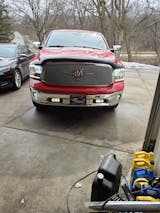How to use fuel injector cleaner?
What is an effective fuel injector cleaner?
An injector cleaner is a commercially available product whose primary purpose is to clean injectors and, more generally, all parts of the injection system, such as combustion chambers, cylinders, and valve stems.
To understand how an injector cleaner works, it's necessary to explain how injectors work to keep the engine running smoothly. Originally, gasoline engines did not have injectors. Rather, the mixture of gasoline and air was created by the carburetor. To keep the engine running smoothly, the carburetor produced a typical mixture of one part gasoline and fifteen parts air. But this dosage, based on mechanical operation, was rarely done correctly, leading to engine malfunctions, higher fuel consumption and, in turn, higher pollution levels.
Injectors gradually replaced carburetors. These parts allow much more precise and variable metering according to the needs of the engine at any given time. For example, the engine needs more fuel during acceleration than during a long downhill drive. The injector, which is electronically linked to the ECU, allows more or less fuel to pass through its tip according to the information sent by the ECU. This minimizes fuel consumption and particulate emissions.
In the injection system of a gasoline engine, the injector is positioned either for direct injection, in which case its base is located directly in the cylinder, or for indirect injection. In the latter case, it is located upstream of the valve. But the fact that one solution is preferred over the other doesn't change the way the injector works or the need for regular cleaning.

Once the car is moving, the fuel passes through the injector to the rest of the circuit. But while the injector is an extremely efficient little part, it suffers from several factors. For one thing, gasoline is never completely pure. Small particles get into its composition and settle on the injectors. What's more, when the car stops, the few drops in the injector evaporate under the effect of heat, but some residue remains. As a result, the injector gradually becomes clogged, leading to engine malfunctions:
- The engine is no longer properly supplied with fuel. As a result, the vehicle will experience cold start problems and/or gaps during acceleration.
- Fuel consumption increases.
- Increased exhaust emissions, including black smoke, which may be grounds for a roadworthiness inspection.
- In the most serious cases, the injector can break, resulting in engine failure.
To avoid all these problems, injector cleaning is a simple and inexpensive solution. Properly and regularly cleaned injectors will typically last more than 150,000 miles. But without cleaning, an injector can show signs of clogging after as little as 5,000 miles. And when it's no longer possible to clean the part, you'll need to replace it, depending on the model.
What is the role of an injector cleaner?
Thanks to its composition rich in active ingredients, an injector cleaner can perform the following 3 actions on your vehicle
- Clean the fuel circuit: the system is completely degreased thanks to propanol and open-chain or aliphatic hydrocarbons.
- Cleaning the combustion chambers of the engine: this improves combustion quality and reduces fuel consumption.
- Removal of water residues: these are removed directly from the fuel using isoalkanes and alkanes.
Its main function is to limit the clogging of the vehicle's injectors, thereby prolonging their life and avoiding premature replacement.
How do I use a injector cleaner?
Gasoline injector cleaners sold in stores and on e-commerce sites are composed of several chemical products, each with its own specific use. For example, they contain aliphatic hydrocarbons and propanols, a type of degreaser that removes scale, which is a deposit that forms when the engine is heated to high temperatures. Cleaners also contain water repellents to remove any traces of water that could cause injector corrosion. Finally, other elements in the cleaner work to improve gasoline combustion and reduce the amount of particulate matter in the vehicle's exhaust.
Most product manufacturers, as well as vehicle manufacturers, recommend cleaning injectors every 5,000 miles. This interval between cleanings is especially advisable for vehicles used primarily in urban areas, where stops and idling with the engine running hot are common, leading to an increase in injector deposits. For vehicles used on freeways and highways, cleaning once a year is often sufficient.

What's certain is that it's wiser to clean your injection system preventively, without waiting for the engine to show signs of weakness. But it's not too late to take action.
Some cleaners are curative in nature. They clean the injectors. Some products have the ability to be reused at short intervals, such as every three fill-ups. This is very convenient in the curative mode. On the other hand, if the problems persist, you'll need a more professional high-pressure cleaning in a shop or, in some cases, a new injector. That's why we recommend preventive use before reaching these extremes.
Which fuel injector cleaner to choose?
In recent years, injector cleaner manufacturers have tended to favor diesel engines, which are more common on the road. As a result, their gasoline cleaner ranges have been less advanced. However, with the increase in sales of gasoline vehicles, encouraged by policies in favor of this less polluting engine, manufacturers are catching up.
It's a good idea to stick with the big brands that have proven themselves. So, yes, cleaners are still quite expensive, but they're a far cry from the price of replacing an injector.
Each range includes a complete product whose role is to remove deposits from the injector and the rest of the injection circuit, as well as limiting black smoke and the presence of water. This type of all-in-one product is the best choice. On the other hand, when refueling prior to a road test, we recommend using a specific cleaner to reduce pollutant emissions. This single-action product eliminates the need for a second inspection and complements regular injector cleaning.
Regular cleaning of the injectors and the injection system in general is a matter of course. For everyone else, however, this is far from automatic. Regular maintenance is often limited to adding oil or wiper fluid. And yet, the simple act of cleaning the injectors can prevent a lot of inconvenience, both on the road and, in the most serious cases, major repair costs. Without draining your bank account, cleaning your injectors effectively protects your engine and allows your vehicle to deliver its full performance at all times. There's no need to delay!
Featured Products
- $479.99
$499.99- $479.99
- Unit price
- / per
- $549.99
$559.99- $549.99
- Unit price
- / per
- $489.99
- $489.99
- Unit price
- / per
- $469.99
$489.67- $469.99
- Unit price
- / per




















